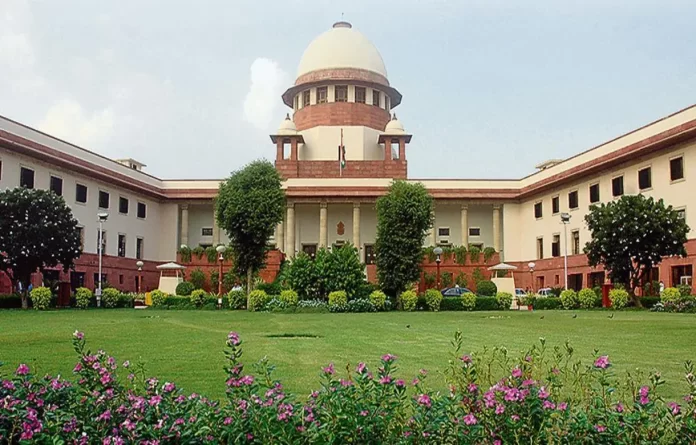The Association for Democratic Reforms (ADR) has filed a contempt petition in the Supreme Court against the State Bank of India (SBI) for alleged non-compliance with the top court’s order to disclose details of electoral bonds. Senior Advocate Prashant Bhushan mentioned the plea on Thursday and sought an urgent hearing.
Senior Advocate Prashant Bhushan mentioned the contempt petition before Chief Justice of India DY Chandrachud for urgent listing. He said that the SBI has lodged an application seeking an extension of time till June 30 to provide the information, which is likely to be listed on Monday. The Senior Advocate requested that the contempt petition be also listed along with the SBI’s application.
The Chief Justice of India told Prashant Bhushan to send an email request with the details of the application number. The contempt petition lodged in the Supreme Court accuses the SBI of deliberate defiance and seeks initiation of contempt proceedings.
The ADR submitted that SBI, the issuing bank of electoral bonds, has failed to furnish important details regarding the bonds to the Election Commission of India (ECI) within the stipulated time frame set by the apex court. The plea, filed in the aftermath of the Supreme Court’s verdict on February 15, highlights the urgency of disclosing information related to electoral bonds.
A Constitution Bench of the Supreme Court had directed the SBI to submit details of electoral bonds purchased since April 12, 2019, to the Election Commission of India by March 6. Nonetheless, days before the deadline, the bank filed an application seeking an extension till June 30, mentioning the complexity of decoding and compiling data from the sale of these bonds.
The contempt petition challenges SBI’s extension request, terming it as mala fide and an attempt to thwart transparency efforts before the upcoming Lok Sabha elections. It also argued that the State Bank of India possesses the necessary infrastructure to swiftly compile and disclose information on electoral bonds. As per ADR, the SBI’s IT system, designed for managing electoral bonds, is already in place and can easily generate reports based on the unique numbers assigned to each bond.
The plea also raised questions about the banks’ claimed difficulties in compiling data, pointing out that it has records of the unique numbers allotted to each electoral bond and the Know Your Customer (KYC) details of purchasers. Furthermore, it also noted that SBI has a vast network of branches and a well-functioning IT system, making the task of compiling data for approximately 22,217 electoral bonds straightforward.
Mentioning the significance of transparency in political financing, ADR contended that voters have a fundamental right to know about the substantial sums of money contributed to political parties through electoral bonds. It pointed out that the lack of transparency goes against the essence of participatory democracy enshrined in Article 19(1)(a) of the Constitution.


